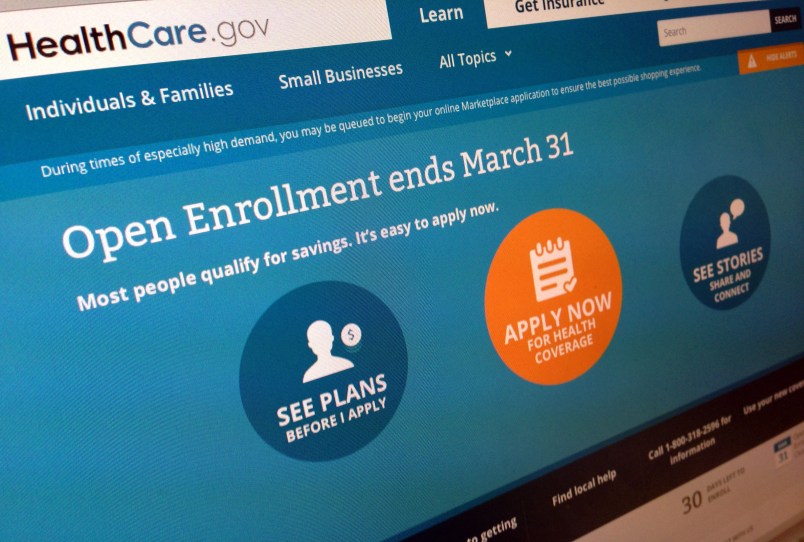The Congressional Budget Office said Friday that its projections for the federal government’s spending on the Affordable Care Act’s coverage provisions in 2019 are now a third lower than what they were when the law was passed in 2010.
CBO Director Keith Hall said in written responses to questions posed by the House Budget Committee that the CBO expects the federal government to spend $148 billion in 2019 on the law’s coverage provisions, down from the $214 billion estimated when the law was passed.
Hall cited a number of reasons for why the law is costing the federal government less than originally expected. One is that less people are using the individual market than anticipated, lowering the feds’ spending on things like the subsidies for insurance premiums. Additionally, Medicare and Medicaid’s costs are coming in under expectations, as are the costs of private insurance — a slowdown in health care costs Hall speculated could have been driven by the recession.
“Although it is unclear how much of that slowdown is attributable to the recession and its aftermath and how much is attributable to other factors, the slower growth has been sufficiently broad and persistent to persuade the
agencies to significantly lower their projections of federal costs for health care,” Hall said.
The Supreme Court’s decision in 2012 to make Medicaid expansion optional for states also “significantly reduced projected costs,” Hall said.
The lowered estimates comes as Republicans are gearing up their push to repeal the Affordable Care Act. The proposals being floated would eliminate the law’s taxes while phasing out its benefits — like its subsidies and its Medicaid expansion — over the course of a few years. GOP lawmakers have signaled that they are willing to advance the repeal legislation before it has been fully scored by the CBO.







More “fake news”, this time from the lyin’ CBO…
The dishonest and failing CBO is very, very not good. Packed to the gills with “Obama people”, if you know what I mean. A disaster!
On the other hand, I’m sure this will help nervous GOP senators embrace Ryan’s mystery plan that’s really, really almost done this time, you guys.
A third LESS? Did you hear that???
UNDERPERFORMING OBAMACARE IS FAILING AMERICANS!!
Shouldn’t that be “Republicans are hoping to pass a repeal before it can be fully scored by the CBO” so that later they can claim they had no idea how big a hole they were blowing in the deficit? Because those tax cuts for rich people are going to be that much harder to justify.
Ya get what ya pay for …Right ? ? …
This is proof it’s ’ cheap shit ’ —